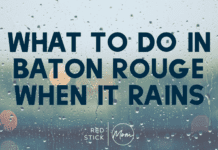How to Find a Good Therapist
Feeling down? Anxious? Overwhelmed? Confused? Devastated? Irritated? Exhausted?

Over it?
Therapy can help with all of that. Carving out time to intentionally process things that have happened and are happening can put you on a path to healing. There is a method to the madness when directly confronting issues that may limit your happiness.
But there is a catch. How do I find the help I need?
It can be overwhelming. But taking that first step of reaching out can go a long way.
When finding a therapist, the internet is a helpful place. Psychologytoday.com is a popular search engine for therapists. You will find where a therapist is located, what population they serve, and what approach they use.
What does all that mean? Let me explain.
Some therapists specialize in seeing children, adolescents, adults, couples, or families. Sometimes you will find a therapist who does it all, but usually, therapists have established a niche. Typing in keywords such as “relationship”, “anxiety”, “ADHD”, “trauma”, and “addiction” can be helpful in targeting your search to find a therapist who has experience treating your needs.
Therapeutic approach? Every therapist uses a theory to inform their practice. A theory summarizes how the therapist conceptualizes life issues, which informs treatment planning and goals for the client.
For example, a cognitive-behavioral therapist (CBT) breaks down a client’s problem into their thoughts, feelings, and behaviors. The client’s thinking is linked to how they are feeling, and what they are doing. From there, they explore what thoughts or behaviors could be changed.
Sound confusing? Here’s a cheat sheet on theories that are effective at treating specific issues:
CBT- depression, anxiety, addiction
Mindfulness- anxiety, addiction
Emotionally focused therapy (EFT)- relationship issues
Gottman theory- relationship issues
EMDR- trauma
Systems- family issues
Solution-focused- life transitions
(This is not a complete list. There are countless helpful theories, but this is a basic preview to get you started.)
Also, asking for recommendations can be helpful. Community social media groups can be a good place to start. A post that includes age, issue, and location can help narrow the search (e.g., “I’m looking for a therapist who sees teens dealing with depression in Baton Rouge.”
Many therapists do their own scheduling. This is why the common complaint of “I called multiple therapists and no one returned my call” is something I hear too often. Email may be a more effective form of communication. You can usually request a free phone consultation prior to scheduling if you would like to “talk” to them first. Research indicates that a positive therapeutic alliance, not theory, is correlated with therapeutic success. Translation: you need to like your therapist for therapy to be effective.
Say you email a therapist who sounds like they may be a good fit, and they are unavailable or don’t accept your insurance. You can ask for a referral. Not every therapist may provide that, but usually most are happy to share their referral sources. They may have insight into who is accepting new clients or may have sooner availability. Some therapists purposefully do not advertise their services, because they prefer to see personally referred clients. So again, it’s helpful to ask.
Hang in there. Therapy can be helpful, and the first step is reaching out to make an appointment. I hope you are able to find a good fit!



















